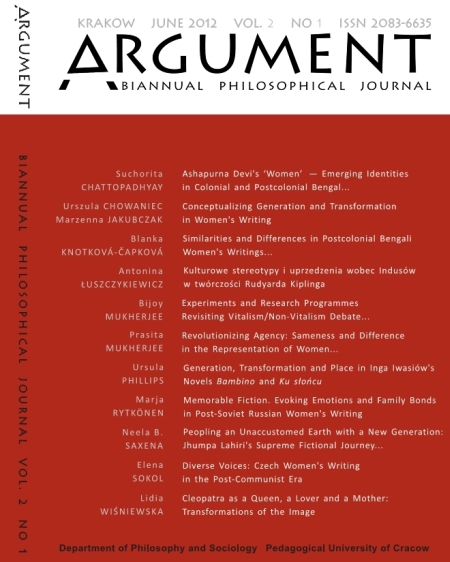Similarities and Differences in Postcolonial Bengali Women’s Writings: The Case of Mahasweta Debi and Mallika Sengupta
Słowa kluczowe:
archetype, Mahasweta Debi/Devi, Bengali literature, feminism, femininity, generation, postcolonial studies, Mallika Sengupta, subaltern studiesAbstrakt
The emancipation of women has become a strong critical discourse in Bengali literature since the 19th century. Only since the second half of the 20th century, however, have female writers markedly stepped out of the shadow of their male colleagues, and the writings on women become more and more often articulated by women themselves. In this article, I focus on particular concepts of femininity in selected texts of two outstanding writers of different generations, a prose writer, and a woman poet: Mahasweta Debi (b. 1926) and Mallika Sengupta (1960-2011). Analyzing Mahasweta’s female characters, I focus on the issue of the double marginalization of dalit tribal women; we can find here impacts of intersectional discrimination of class, gender and caste. Debi is very radical in her social criticism but is quite reluctant to accept the label of feminism. Mallika, on the other hand, represents a movement among the female writers of her generation that openly declares her support for feminist ideologies, which can be demonstrated on some of the examples referred to here. Another important strand of Mallika’s constructions of femininity are archetypal images — mythological metaphors of femininity (in the Hindu context) which may in some cases be interpreted in accordance with difference feminism, in others as a critique of the essentialized and dichotomous concepts of masculinity and femininity. While Mahasweta’s emancipation drive is more deeply grounded in her field research and journalistic activism in the tribal areas she writes about, Mallika’s has been more strongly linked with the academia and has joined the theoretical feminist discourse. Through a close reading the women’s emancipation discourse of these two protagonists in Bengali literature, we can speak of a shift from a practical, concrete criticism, to a theoretically founded radicalism.


